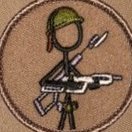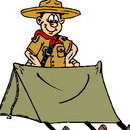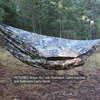Cub Scouts
For Cub Scout specific topics only.
3791 topics in this forum
-
- 8 replies
- 3k views
-
- 13 replies
- 3.8k views
-
- 25 replies
- 7.7k views
-
- 25 replies
- 6.6k views
-
- 5 replies
- 2k views
-
- 44 replies
- 22.1k views
-
- 0 replies
- 1.1k views
-
- 82 replies
- 22.5k views
-
- 30 replies
- 11.3k views
-
- 5 replies
- 2.5k views
-
- 3 replies
- 2k views
-
- 10 replies
- 2.7k views
-
- 5 replies
- 2k views
-
- 23 replies
- 5.8k views
-
- 6 replies
- 2.1k views








